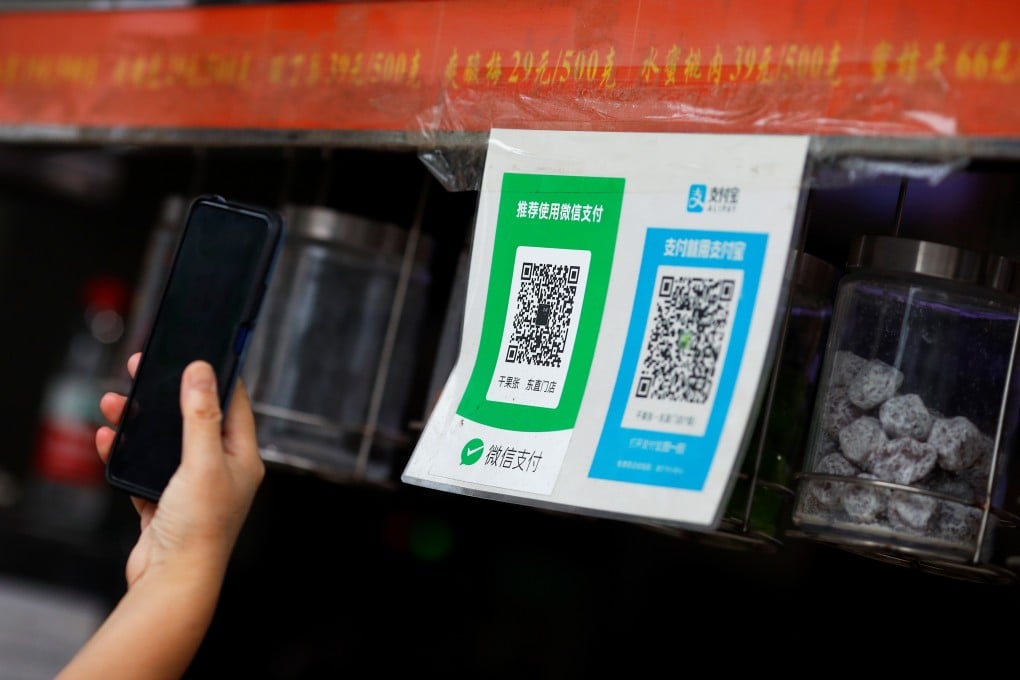Do fintech giants Alipay and WeChat Pay have monopoly power? China’s new regulation leaves experts guessing
- A draft regulation from China’s central bank specifies two different markets for assessing the market power of fintech companies
- Experts say the use of two terms is ‘sowing confusion’ and defining markets should be left to antitrust courts

A new regulation drafted by China’s central bank, which seeks to determine whether nonbank institutions qualify as monopolies, has analysts and legal scholars pondering on the potential of Ant Group’s Alipay and Tencent Holdings’ WeChat Pay being subject to penalties or broken up.
The draft, which was published on Thursday to solicit public feedback through February 19, uses both “nonbank payment service market” and “nationwide electronic payments market” to refer to different markets. How the People’s Bank of China (PBOC) defines the terms could have far-reaching consequences for the future of China’s US$29 trillion e-payment market and the country’s two largest mobile payment service providers.
The new rules also put China’s central bank in an unusual position. Angela Zhang, director of the Centre for Chinese Law at the University of Hong Kong, said that it is “problematic” for the central bank to define a market in the context of antitrust regulation.
When deciding whether an institution qualifies as a monopoly, “the boundary of a market should be defined by antitrust regulators and the courts”, Zhang said. “In electronic payments, do you calculate market share by turnover or volume? It’s not that simple and easy.”
Article 55 of the draft stipulates that the PBOC can ask the antitrust authority of China’s State Council to summon and warn potential monopolies in cases when one institution owns more than a third of China’s “nonbank payment service market”, two institutions own over half of the market, or three institutions own more than three-fifths of the market.
The central bank did not offer details clearly defining the market. But according to the bank’s quarterly payment reports, the “turnover of e-payments handled by nonbank payment institutions” totalled 264 trillion yuan (US$40.8 trillion) in the 12 months through June 2020. Alipay handled 118 trillion yuan in payments in China during the same period, according to the October initial public offering prospects from Ant Group, an affiliate of Alibaba Group Holding, the owner of the South China Morning Post.